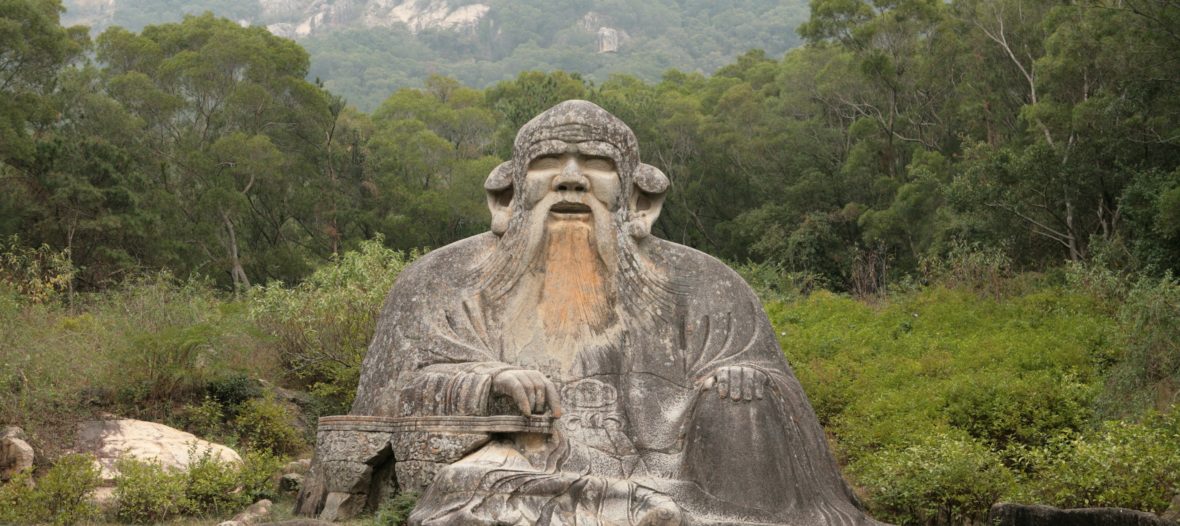Lao Tzu was an ancient Chinese philosopher and writer. He is the reputed author of the Tao Te Ching, the founder of philosophical Taoism and a deity in religious Taoism and traditional Chinese religions. Take a look below for 26 more interesting and fun facts about Lao Tzu.
1. A semi-legendary figure, Lao Tzu was usually portrayed as a 6th century BC contemporary of Confucius, but some modern historians consider him to have lived during the Warring States period of the 4th century BC.
2. A central figure in Chinese culture, Lao Tzu is claimed by both the emperors of the Tang dynasty and modern people of the Li surname as a founder of their lineage.
3. His work has been embraced by both various anti-authoritarian movements and Chinese Legalism.
4. In traditional accounts, Lao Tzu’s personal name is usually given as Li Er and his courtesy name as Boyang.
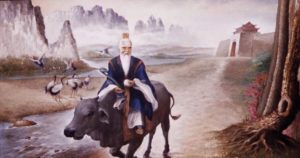
5. A prominent posthumous name was Li Dan.
6. Laozi, another name that he’s known by, is a honorific title, usually meaning “master.”
7. As a religious figure, he is worshiped under the name “Supreme Old Lord” and as one of the “Three Pure Ones.”
8. During the Tang dynasty, he was granted the title of “Supremely Mysterious and Primordial Emperor.”
9. According to legend, Lao Tzu decided to leave society. He would have vanished without a trace if a customs official on the border had not asked him to write a book before he retired from the world.
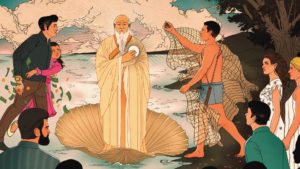
10. According to legend, Lao Tzu is thought to have left society on the back of a water buffalo.
11. The identity and life of Lao Tzu is obscure, and there has been much controversy over his dates. Some scholars argue that he lived in the sixth century, while others maintain that he lived two or three centuries later.
12. His very existence has been questioned, with debates raging as to whether he was a historical or mythical figure.
13. Lao Tzu is said to have beaten Confucius, reputedly his junior, in debate. He advised Confucius to give up forcing information into his head and instead let go of everything and follow the natural Tao.
14. The earliest certain reference to the present figure of Lao Tzu is found in the 1st century BC Records of the Grand Historian collected by the historian Sima Qian from earlier accounts.
15. He was an official in the imperial archives and wrote a book in two parts before departing to the west.
16. According to traditional accounts, Lao Tzu was a scholar who worked as the Keeper of the Archives for the royal court of Zhou. This reportedly allowed him broad access to the works of the Yellow Emperor and other classics of the time.
17. The stories assert that Lao Tzu never opened a formal school but nonetheless attracted a large number of students and loyal disciples.
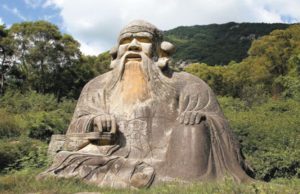
18. He was sometimes held to have come from the village of Chu Jen in Chu.
19. In accounts where Lao Tzu married, he was said to have had a son named Zong who became a celebrated soldier.
20. The third story in Sima Qian states that Lao Tzu grew weary of the moral decay of life in Chengzhou and noted the kingdom’s decline. He ventured west to live as a hermit in the unsettled frontier at the age of 80.
21. Lao Tzu is traditionally regarded as the author of the Tao Te Ching, though the identity of its author has been debated throughout history.
22. As with most other ancient Chinese philosophers, Lao Tzu often explains his ideas by way of paradox, analogy, appropriation of ancient sayings, repetition, symmetry, rhyme and rhythm.
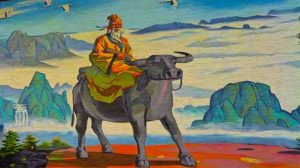
23. Political theorists influenced by Lao Tzu have advocated humility in leadership and a restrained approach to statecraft, either for ethical and pacifist reasons, or for tactical ends.
24. Lao Tzu was a proponent of limited government.
25. The right-libertarian economist Murray Rothbard suggested that Lao Tzu was the very first libertarian, likening his ideas on government to F.A. Hayek’s theory of spontaneous order.
26. Lao Tzu is traditionally regarded as the founder of Taoism, intimately connected with the Tao Te Ching and “original” Taoism.

